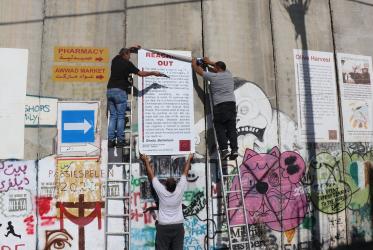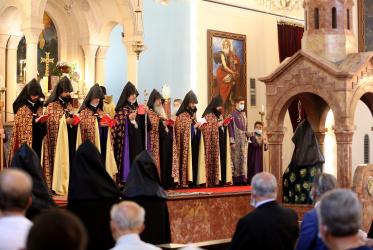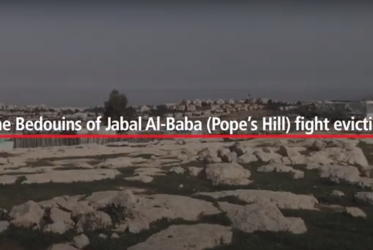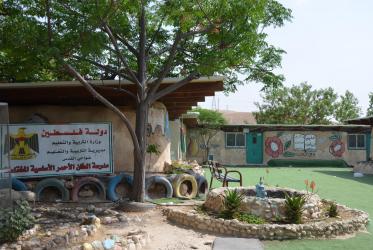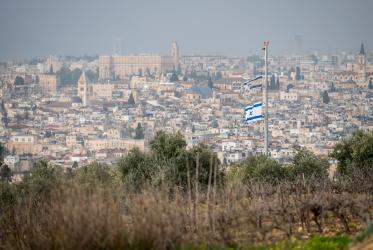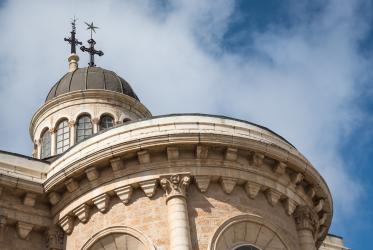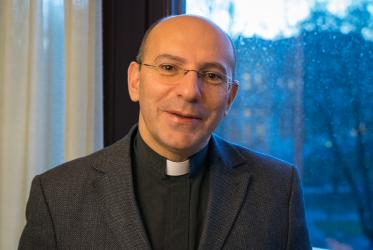Displaying 61 - 80 of 87
In Lebanon, “without peace there is no justice”
21 July 2021
Video: Freedom to worship - Easter Initiative 2021
01 April 2021
Video: Khan Al Ahmar - Easter Initiative 2021
01 April 2021
Bedouins of Pope’s Hill fight eviction
30 March 2021
East Jerusalem: Denied citizenship and the vote
30 March 2021
In pictures: Week of Prayer for Christian Unity
01 February 2021
Palestinian Christian peace worker yearns for courageous leaders
10 December 2020
A hopeful, but not optimistic Palestinian ecumenist
09 December 2020

